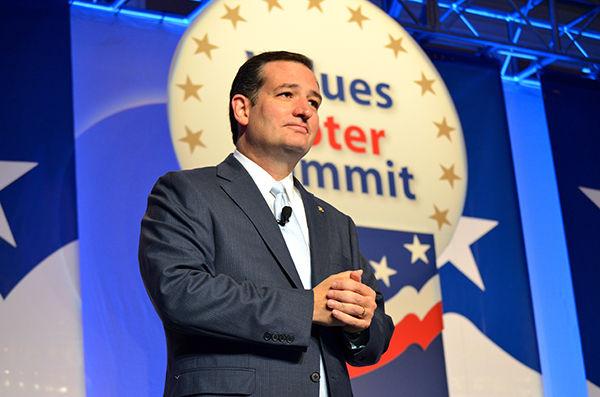Sen. Ted Cruz became the first Republican to announce his candidacy for United States president in 2016 on Monday.
George Edwards III, university distinguished professor of political science, said Cruz’s stance is heavily right-wing, conservative and in line with Tea Party ideology.
“Today he said, ‘Look, I don’t like same-sex marriage, I don’t like the Affordable Care Act,’ so it’s clearly a hard-right, small-government stance, which is not in the mainstream of American public opinion, which isn’t to say that it’s right or wrong — everybody can figure that out on their own,” Edwards said.
Edwards said the Republican primary electorate — the Republicans who actually vote in primaries — is much more conservative than the typical Republican and even more so than the typical American. He said it doesn’t matter in the long run that Cruz differs from most of America because of those to whom he must appeal.
“For people like Cruz, who are
substantially to the right of the American center, it doesn’t matter that you’re substantially out of line from where most people in America are — you’re appealing to the right of the right,” Edwards said. “So Cruz fits in there — his views are compatible with many people on the right.”
One possibility as to why Cruz declared early is to secure donations and campaign funding, said Paul Kellstedt, associate professor of political science.
“Him declaring early, I think, is an attempt to thwart the donor money that is flowing toward Jeb Bush right now,” Kellstedt said. “I think Senator Cruz was concerned that if he didn’t get his candidacy announced, more and more money would flow to Jeb Bush and the race would be over before it started.”
Edwards said Bush could be seen as slightly less right wing than Cruz, which could have an effect on donor activity.
“You’ll notice some of the old hands, big donors, et cetera, have gravitated toward Jeb Bush, who they see as a more moderate conservative and that’s correct on a number of matters,” Edwards said. “They want to win the general election but Cruz’s job right now is to win the nomination and the nomination is decided on the right of the right.”
Martin Medhurst, a former A&M professor of speech communication who is now a professor of rhetoric and communication and political science at Baylor, said it is up to the candidate’s discretion when they choose to declare, but an announcement is usually in light of some strategic purpose or advantage.
“Cruz is relatively unknown nationwide, which suggests he needs to get out front and get some name recognition,” Medhurst said. “It makes perfect sense he would announce early on. Someone like Hillary Clinton isn’t under any great need to announce early.”
Medhurst said the decision to be the first to announce is advantageous in that it helps focus the spotlight on Cruz, but with the spotlight comes greater attention and scrutiny.
“The more exposure you have the more chance you have of making a mistake,” Medhurst said. “While Ted Cruz is obviously a bright fellow, the fact is as soon as you turn on the green light, every media outlet in the country is going to be gunning for you.”
Overall, Edwards said he doesn’t think the decision to announce early will be all that significant. He attributes this to the sheer number of candidates that haven’t formally declared yet.
“I don’t think its going to be terribly significant, particularly because so many other candidates are making the rounds — visiting Iowa, visiting New Hampshire, contacting donors — so the fact they haven’t officially declared is something of an artifice,” Edwards said. “It’s a full field — Jeb Bush, Rick Perry, Marco Rubio, Rand Paul from Kentucky, Mike Huckabee. There are a lot of people who are sticking their toe in the water and will no doubt have their toes in for a good many months to come.”










